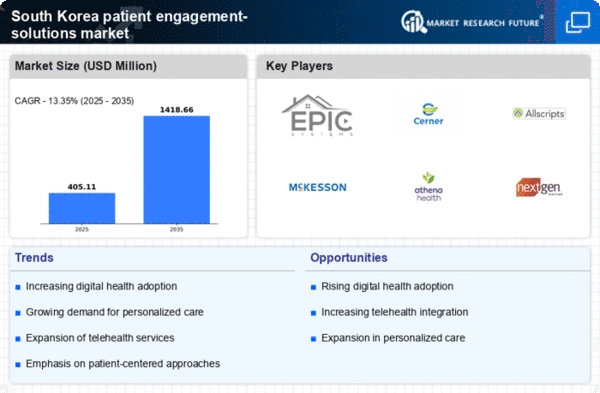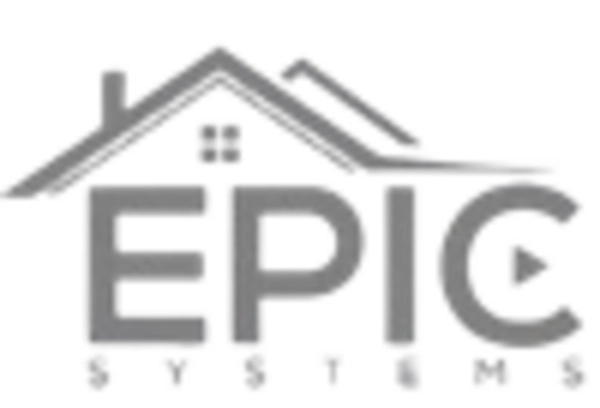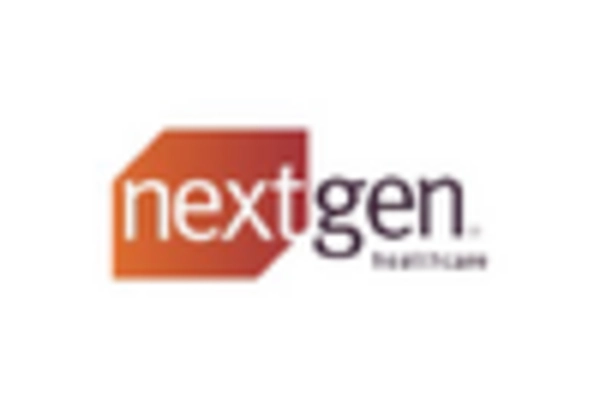Supportive Government Initiatives
The South Korean government is actively promoting initiatives aimed at enhancing patient engagement, which is positively impacting the patient engagement-solutions market. Policies that encourage the use of technology in healthcare, such as the Digital Healthcare Innovation Strategy, are paving the way for increased investment in patient engagement solutions. Government support is crucial, as it not only provides funding but also establishes regulatory frameworks that facilitate the adoption of innovative technologies. Recent statistics show that government funding for digital health initiatives has increased by 25% in the past year, indicating a strong commitment to improving patient engagement. This supportive environment is likely to attract more players to the patient engagement-solutions market, fostering innovation and competition.
Growing Emphasis on Health Literacy
Health literacy is becoming a critical factor influencing the patient engagement-solutions market in South Korea. As patients become more informed about their health conditions and treatment options, there is a corresponding demand for solutions that enhance their understanding and engagement. Studies indicate that approximately 40% of South Koreans struggle with health literacy, which presents an opportunity for the patient engagement-solutions market to develop educational resources and tools. By improving health literacy, patients are more likely to participate actively in their care, leading to better health outcomes. This trend suggests that companies focusing on educational initiatives may find a receptive audience in the South Korean market, thereby fostering growth in the patient engagement-solutions market.
Shift Towards Value-Based Care Models
The transition from fee-for-service to value-based care models is reshaping the patient engagement-solutions market in South Korea. This shift emphasizes the importance of patient outcomes and satisfaction, prompting healthcare providers to seek solutions that enhance patient engagement. Value-based care models incentivize providers to focus on preventive care and chronic disease management, which aligns with the goals of patient engagement solutions. Data suggests that healthcare organizations adopting value-based care are experiencing a 15% improvement in patient satisfaction scores, underscoring the potential benefits of enhanced engagement. As more providers embrace this model, the demand for effective patient engagement solutions is expected to rise, driving growth in the market.
Rising Demand for Personalized Healthcare
The patient engagement-solutions market in South Korea is experiencing a notable increase in demand for personalized healthcare services. Patients are increasingly seeking tailored solutions that cater to their individual health needs and preferences. This shift is driven by a growing awareness of the importance of patient-centered care, which emphasizes the role of patients in their own health management. As a result, healthcare providers are investing in technologies that facilitate personalized communication and engagement strategies. According to recent data, approximately 70% of patients express a preference for personalized health information, indicating a significant opportunity for the patient engagement-solutions market to expand its offerings. This trend suggests that companies focusing on customization and personalization may gain a competitive edge in the evolving landscape of healthcare in South Korea.
Increased Adoption of Digital Health Technologies
The patient engagement-solutions market is witnessing a surge in the adoption of digital health technologies across South Korea. With the proliferation of smartphones and internet access, patients are increasingly utilizing mobile applications and online platforms to manage their health. This trend is supported by a report indicating that over 60% of South Koreans use health-related apps, highlighting the potential for growth in the patient engagement-solutions market. Digital tools not only enhance patient communication but also facilitate remote monitoring and telehealth services, which are becoming integral to modern healthcare delivery. As healthcare providers recognize the benefits of these technologies, investments in digital solutions are likely to increase, further driving the expansion of the patient engagement-solutions market.
















